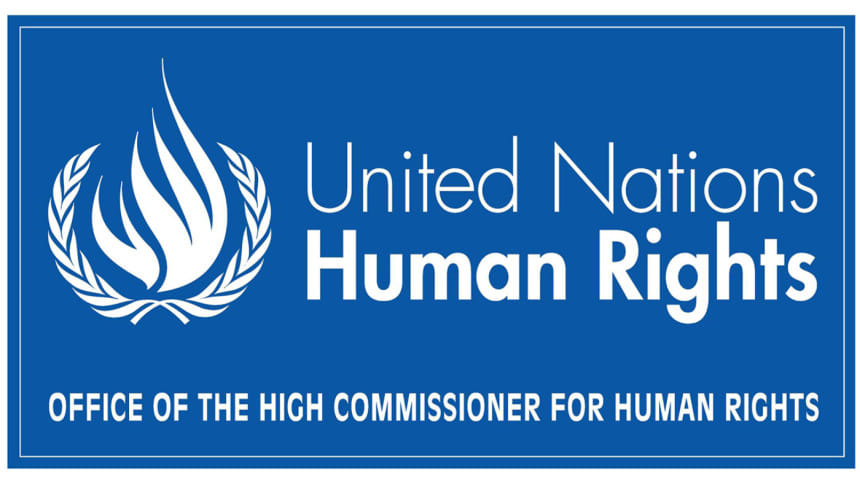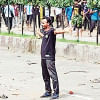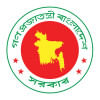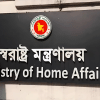‘End crackdown, restore full access to internet’

UN experts on Thursday called upon Bangladesh government to immediately ensure accountability for human rights violations, end the violent crackdown against protesters and political opponents, and to fully restore people's access to the internet and social media.
In a statement on the website of the Office of the United Nations' High Commissioner for Human Rights (OHCHR), the experts said, "We have been alarmed by the large number of unlawful killings, possible enforced disappearances, torture and the detention of thousands of people.
"We are deeply concerned by reports of targeted attacks, threats, intimidation and retaliation by the authorities and government-aligned groups against protest leaders, political activists, human rights defenders and journalists."
Citing local media in Bangladesh, the statement said at least 170 people, including police personnel, were confirmed dead in the violence centring the quota reform movement, with the actual death toll likely to be much higher. At least two journalists have been killed and several others injured. There are also disturbing reports of journalists being threatened by authorities for their news reporting.
"Prompt, thorough, independent and impartial investigations in line with internationally recognised standards must be carried out into all human rights violations."
Saying that the government has a history of broken promises with regards to human rights and that there is a lack of public trust in the judiciary, the experts urged the government to initiate a credible accountability process with the support of the UN. The experts offered their assistance in this regard.
"We call on the authorities to immediately release all peaceful protesters and ensure due process for those charged and prosecuted in connection with their role in the violence," they said.
Since the start of July, university students and job seekers have been protesting the reinstatement of the quota system in government jobs, and demanding reforms to the system. On June 5, the High Court effectively reinstated the quota system by declaring illegal a 2018 government circular that abolished it.
The Supreme Court on July 10 issued a status quo on the HC verdict.
According to the statement on the OHCHR website, the violence centring the quota reform movement erupted on July 15, after "inflammatory public statements by Government officials and attacks by Government-aligned youth groups on the peaceful protesters. Law enforcement authorities reportedly rushed in to support government-aligned groups and used excessive force, including live bullets, against unarmed protesters."
It said some of the protesters retaliated, destroying and burning public property and vehicles.
Early on July 18, mobile data was shut off and later that night, the entire country was plunged into digital darkness as broadband internet across the country became unavailable.
The government called a nationwide curfew on the night of July 19, and called in the army.
The statement said the army was given shoot-on-sight orders.
On July 21, the Supreme Court decided to keep seven percent government jobs reserved and open the rest to competition. On July 23, the government issued a circular taking merit-based recruitment in civil service to 93 percent from the previous 44 percent.
According to the OHCHR statement, the authorities in Bangladesh had shut down broadband and mobile internet, preventing access to websites, social media and web-based mobile phone communications.
However, the government and the Bangladesh Telecommunication Regulatory Commission (BTRC) have said the internet shutdown occurred due to an attack on the data centres in the capital's Mohakhali. Broadband internet is slowly being restored since the evening of July 23, while mobile data is yet to be restored. Access to social media has been limited.
The experts said, "The government needs to fully restore the internet and access to social media immediately and ensure that local and foreign media are granted full access to report on the developments without being attacked, threatened or pressured.
"The state must uphold people's right to information. Total transparency and accuracy on the numbers of those detained, forcibly disappeared, killed or subjected to other human rights violations, as well as careful preservation of evidence is essential to ensuring accountability and restoring public trust."
They warned that while a recent decision by the courts to scale back the controversial quota system was an important step in the right direction, it will not be sufficient to restore the people's trust and confidence in the government.
"To regain public trust, the Government needs to take responsibility and ensure a credible process of investigation and accountability to hold perpetrators to account."
They are in contact with the Government of Bangladesh on this matter, the statement said.
The UN experts are Cecilia Bailliet, independent expert on human rights and international solidarity; George Katrougalos, independent expert on the promotion of a democratic and equitable international order; Morris Tidball-Binz, special rapporteur on extrajudicial, summary or arbitrary executions; Margaret Satterthwaite, special rapporteur on the independence of judges and lawyers; Irene Khan, special rapporteur on the promotion and protection of the right to freedom of opinion and expression; Surya Deva, special rapporteur on the right to development; Farida Shaheed, special rapporteur on the right to education; Gina Romero, special rapporteur on the rights to freedom of peaceful assembly and of association; Mary Lawlor, special rapporteur on the situation of human rights defenders; Alice Edwards, special rapporteur on torture and other cruel, inhuman or degrading treatment or punishment; Matthew Gillett (chair); Ganna Yudkivska (vice-chair on communications); Priya Gopalan (vice-chair on follow-up); Miriam Estrada-Castillo and Mumba Malila, Working Group on Arbitrary Detention; Aua Baldé (chair-rapporteur); Gabriella Citroni (vice-chair); Grażyna Baranowska and Ana Lorena Delgadillo Pérez, Working Group on Enforced or Involuntary Disappearances.

 For all latest news, follow The Daily Star's Google News channel.
For all latest news, follow The Daily Star's Google News channel. 








Comments